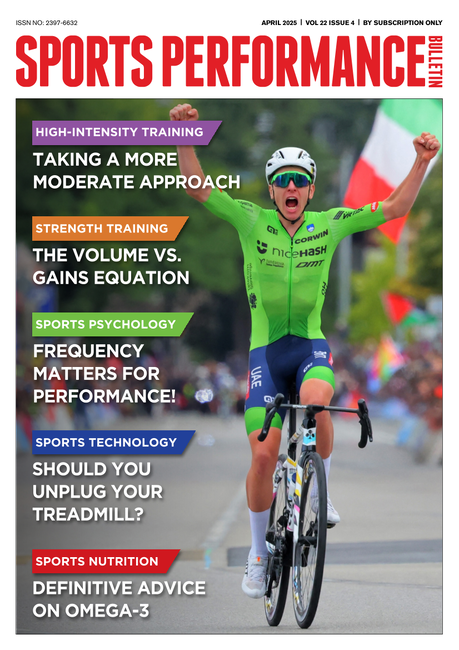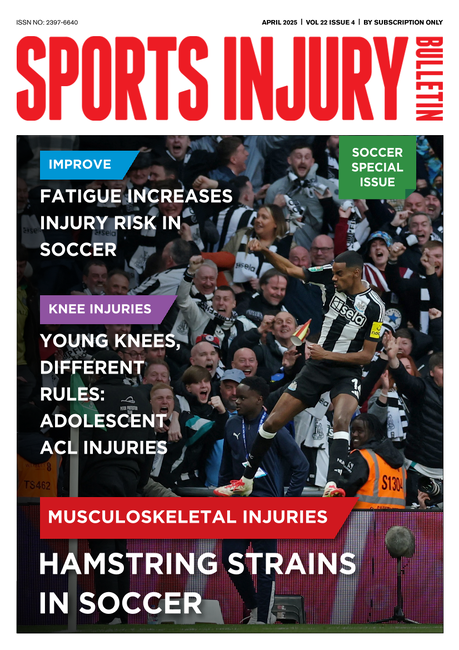Love your tendons – with collagen!
Although most of the focus relating to athletic performance tends to focus on muscle function, it’s important to remember that tendons play an essential role too. Tendon health matters because tendons function as a link between muscles and bones, and are therefore essential for the execution of movements. Tendons not only transmit forces generated by muscles to the skeletal system, producing movement, but they are also able to store and release energy, which creates favourable conditions for optimizing muscle force production(1,2).
Indeed, scientists now understand that stiff yet ‘springy’ tendons are incredibly important - not just because of a reduced risk of injury, but also because they help improve muscle efficiency (more technically known as muscle economy)(3).This explains why elite runners tend to possess high levels of tendon stiffness and resilience (see this article)(4).
Building tendon strength
Given the role of tendon function in athletic performance, training strategies that can strengthen and stiffen tendons make a lot of sense. Research shows that high-load resistance training is an efficient way to augment the adaptive response of tendons. In particular, studies show that high-loading levels stimulates cells called ‘tenocytes’ to produce extracellular matrix proteins (proteins that give tendons their structural integrity)(5). As a consequence, both tendon stiffness and cross-sectional area improve following high load resistance training.
A question that arises is can tendon strength be augmented when heavy resistance training is combined with a nutritional approach that delivers increased levels of tendon protein building blocks (rather like the use of whey protein to boost muscle growth after strength training)? Well, there is some evidence that these tendon building (anabolic) processes can be positively influenced by the consumption of protein building blocks known as ‘collagen peptides’.
Some lab experiments have demonstrated that collagen peptides can stimulate tenocytes to synthesize tendon matrix molecules such as elastin and collagen type I and III(6). These collagen peptides consist of small protein fragments containing a high proportion of the amino acids proline and hydroxyproline, both of which are present in tendon tissue in large amounts. Moreover, collagen peptides have a high resistance to intestinal digestion when consumed (ie they are not easily destroyed by stomach acid and other digestive processes) and they are also well absorbed(7). This means that a significant proportion of the proline and hydroxyproline they contain can find its way to recovering tendons via the bloodstream.
Collagen for athletes?
Although some clinical studies have provided evidence that collagen peptides in combination with a resistance training intervention enhances the rehabilitation of injured tendons, what would be really interesting to know is whether taking collagen can produce beneficial effects on the structural and mechanical properties of healthy tendons? In other words, could athletes benefit from the routine use of collagen? Brand new research published by an international team of scientists in the Scandinavian Journal of Medicine and Science in Sports has attempted to answer this very question(8).
In a randomized, placebo-controlled study, 40 healthy and uninjured male volunteers (average age: 26 years) completed a 14-week high-load resistance training program. However, the participants were split into two groups:
- The intervention group was randomized to receive 5 grams of collagen peptides per day.
- The control group was randomized to receive 5 grams of an inert placebo (maltodextrin) per day.
Three training sessions per week were conducted. In each training session, subjects conducted two exercises each consisting of three sets of dynamic calf raises. One exercise involved seated calf raises while the other used a standing position. At the beginning and after every fourth week of the training period, the individual 1RM was tested in order to adjust the training weight to the actual strength level of each subject. At the same time intervals, the load was progressively increased from 70 to 85% of the subject’s 1RM, and the reps per set decreased from twelve down to six.
Before and after the intervention period, all of the volunteers underwent testing in order to determine changes in Achilles tendon cross-sectional area (CSA), tendon stiffness, muscular strength of the calf muscle and thickness of the plantar flexors (of the feet) and the results between the two groups were compared. When the data was number crunched, the results showed that (see figure 1):
- Tendon stiffness and muscle strength increased equally in both groups.
- The collagen peptide supplementation led to a very significantly increased in tendon cross sectional area (+11.0%) compared with the control group (+4.7%).
- There was a greater increase in muscle thickness in the collagen group (+7.3%) compared with the PLA group (+2.7%).
You need to be logged in to continue reading.
Please register for limited access or take a 30-day risk-free trial of Sports Performance Bulletin to experience the full benefits of a subscription. TAKE A RISK-FREE TRIAL
TAKE A RISK-FREE TRIAL
Newsletter Sign Up
Testimonials
Dr. Alexandra Fandetti-Robin, Back & Body Chiropractic
Elspeth Cowell MSCh DpodM SRCh HCPC reg
William Hunter, Nuffield Health
Newsletter Sign Up
Coaches Testimonials
Dr. Alexandra Fandetti-Robin, Back & Body Chiropractic
Elspeth Cowell MSCh DpodM SRCh HCPC reg
William Hunter, Nuffield Health
Keep up with latest sports science research and apply it to maximize performance
Today you have the chance to join a group of athletes, and sports coaches/trainers who all have something special in common...
They use the latest research to improve performance for themselves and their clients - both athletes and sports teams - with help from global specialists in the fields of sports science, sports medicine and sports psychology.
They do this by reading Sports Performance Bulletin, an easy-to-digest but serious-minded journal dedicated to high performance sports. SPB offers a wealth of information and insight into the latest research, in an easily-accessible and understood format, along with a wealth of practical recommendations.
*includes 3 coaching manuals
Get Inspired
All the latest techniques and approaches
Sports Performance Bulletin helps dedicated endurance athletes improve their performance. Sense-checking the latest sports science research, and sourcing evidence and case studies to support findings, Sports Performance Bulletin turns proven insights into easily digestible practical advice. Supporting athletes, coaches and professionals who wish to ensure their guidance and programmes are kept right up to date and based on credible science.









